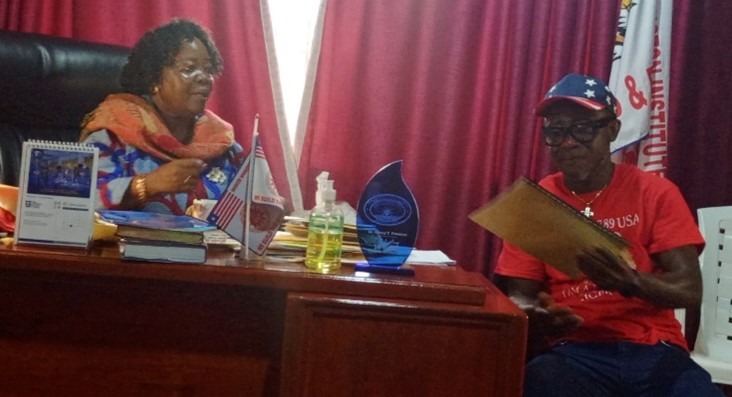Booker Washington Institute (BWI), Liberia’s flagship vocational training institution, is facing significant challenges and urgently requires assistance. Dr. Nancy T. Freeman, the Principal of BWI, has issued a plea for support, highlighting the pressing needs of the institution. This call to action has resonated with alumni, both within Liberia and abroad, urging them to contribute to the revitalization of their alma mater. One such alumnus, Francis W. Boe, a 1989 graduate, has responded to Principal Freeman’s appeal, emphasizing the importance of collective and individual contributions to address the institute’s needs. He underscores the gravity of the situation, echoing Principal Freeman’s recent communication to President Boakai about the persistent challenges plaguing BWI.
Mr. Boe’s commitment to BWI is evident in his active engagement with the institution. He acknowledges the impact of Principal Freeman’s WhatsApp video message, which served as a catalyst for his involvement. This message emphasized the urgency of the situation and the need for immediate action from all stakeholders. Mr. Boe strategically calls upon prominent alumni, including Senator J. Emmanuel Nuquay, Minister Jerolinmek Piah, Minister Augustine K. Ngafuan, and Levi Deman, all members of the class of 1989. He believes their influence and resources can play a pivotal role in addressing BWI’s challenges. His plea underscores the importance of alumni involvement in supporting educational institutions and fostering a sense of collective responsibility.
During a recent visit to BWI, accompanied by fellow alumnus Sam Tomah, Mr. Boe updated Principal Freeman on his ongoing contributions to the institution. He highlighted his past involvement as a former electronics teacher, his contributions to enhancing the teaching of mathematics and physics, and his sponsorship of the 2011 class project, which resulted in the construction of a library annex on campus. These contributions demonstrate his long-standing commitment to the institution and highlight the impact of alumni engagement in enhancing educational facilities. Furthermore, he detailed his ongoing involvement in a bus stop project valued at US$20,000, expressing his determination to see its swift completion before Christmas, contributing to the overall improvement of the BWI campus.
Mr. Boe’s commitment extends beyond financial contributions. During a return trip in March 2024, he observed the dilapidated state of the teacher’s lounge and took immediate action. He donated a 65-inch television, installed a DStv system, and provided a water fountain, demonstrating his dedication to improving the working conditions of the BWI staff. These contributions are not merely material donations but represent a deep understanding of the needs of the institution and a desire to create a more conducive environment for both students and faculty. His actions serve as an example of the significant impact individual alumni can have on an institution’s well-being.
The pressing challenges facing BWI necessitate a multifaceted approach to solutions. While the contributions of individual alumni like Mr. Boe are invaluable, a more structured and coordinated effort is required. The involvement of prominent alumni in leadership positions, as highlighted by Mr. Boe, is crucial for mobilizing resources and advocating for policy changes that can benefit the institution. The collective efforts of alumni, coupled with government support and community engagement, can create a sustainable roadmap for BWI’s revitalization. This collaborative approach is essential for ensuring the long-term success of the institution and its ability to fulfill its mandate of providing quality vocational training.
In conclusion, BWI stands at a critical juncture, grappling with significant challenges that threaten its ability to effectively serve its students and contribute to Liberia’s development. The call to action by Principal Freeman and the response from alumni like Mr. Boe highlight the urgent need for collective action. The involvement of influential alumni, coupled with the generosity of individual contributors, can significantly impact the institution’s future. However, a long-term solution requires a comprehensive strategy involving government support, community engagement, and a sustained commitment from all stakeholders. The revitalization of BWI is not just about restoring its physical infrastructure; it is about investing in Liberia’s future by providing its youth with the skills and knowledge necessary to thrive in a dynamic global economy. The collective effort to support BWI is an investment in Liberia’s human capital and its potential for sustainable development.


